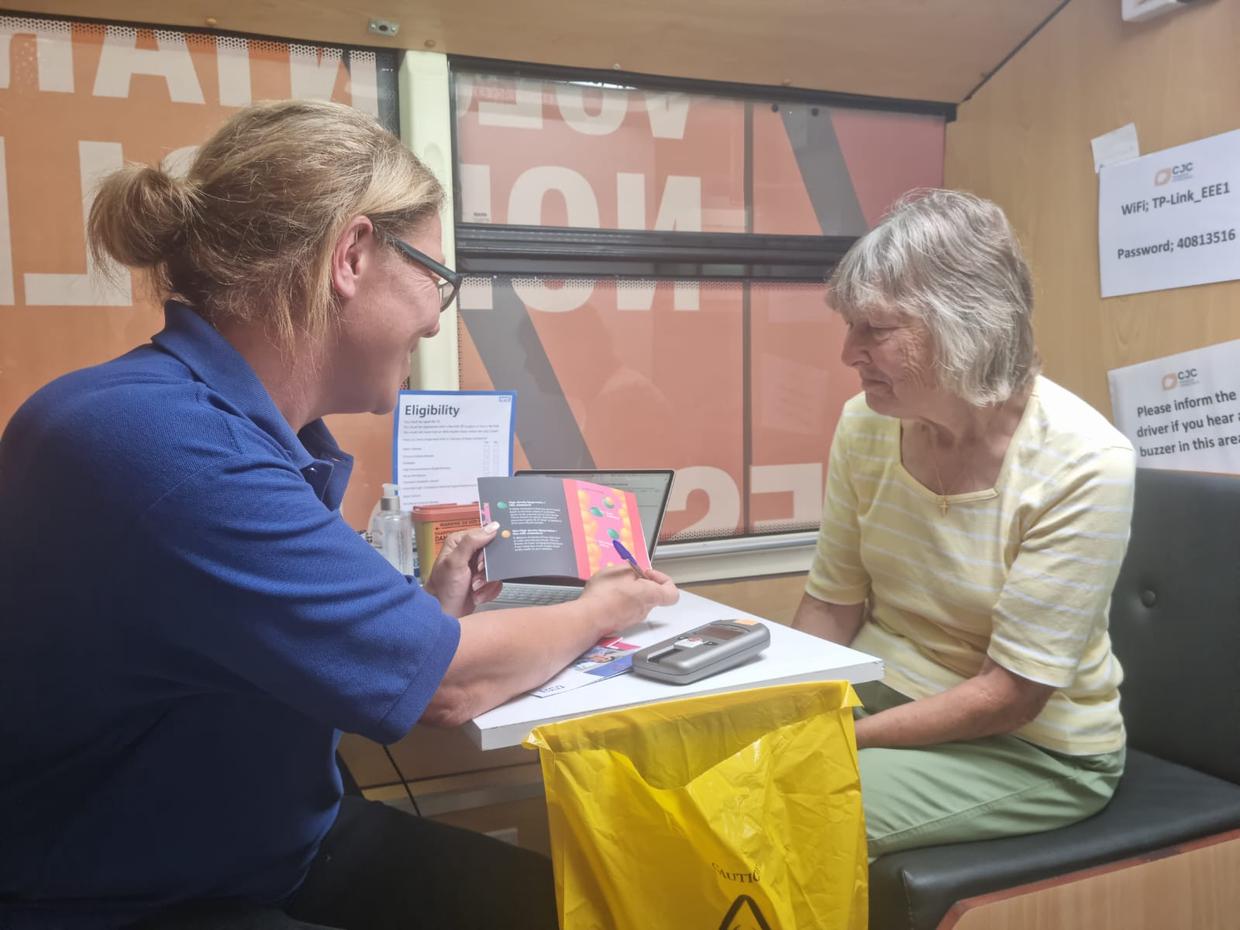National Cholesterol Month
16 Oct 2023

What is Cholesterol?
Cholesterol is a fatty, waxy substance however it is essential to maintain a healthy life. It is found in the brain, adrenal glands, nervous tissue and skin. It is used to structure cell membranes, to manufacture steroid hormones and vitamin D within the body and it is used to produce bile acids which helps the digestion and absorption of fats in the diet.
Although you need it, having high levels of cholesterol can block your blood vessels and as a result can put you at a higher risk of developing heart problems or a stroke.
Get your cholesterol checked during your appointment
As part of your NHS Health Check we assess your Cardiovascular risk of having a heart attack or stroke within the next ten years. There are no symptoms associated with having high cholesterol and you can only find out if you have it from a blood test which can be done either from a finger prick test or from a needle in the arm.
The results show the overall amount of cholesterol in your blood, both good and bad. If your cholesterol is too high, we will refer you to your GP and advise you on how to improve your results through manageable changes to your lifestyle.
How do we control our cholesterol?
Healthy Diet
To lower cholesterol it is important to reduce amount of saturated fats in your diet and seap them out for unsaturated fats such as:
- Oily fish, (mackerel/salmon)
- Brown rice / pasta
- Avocadoes
- Nuts and sees
- Fruit and vegatables
Exercise
To keep cholesterol at a healthy level it is also important to exercise and aim to do around 150mins (2 ½ hours) of physical activity a week.
More obvious lifestyle choices will also help maintain a lower cholesterol, such as smoking and cutting down on alcohol. We can give you further advice, useful tips and information to take away at your Health Check.
Check if your eligible and book yours here: https://norfolkhealthchecks.reedwellbeing.com/book/
